“Fibber McGee and Molly” – How the Golden Age of Radio Made Johnson a Household Name
Long before many companies discovered national advertising as the wave of the future, SC Johnson sponsored the popular radio programme, “Fibber McGee and Molly.” In its heyday of the 1930s and ‘40s, the long-running radio hit reached up to 20 million listeners a week and helped make us a household name.
Radio Advertising Helps Build a Relationship
Building trust with your audience is a lot like building a new friendship. You open a conversation. Put your best foot forward. And, sharing a laugh never hurts. As far back as 1888 – just two years after the founding of SC Johnson – we had already begun experimenting with advertising to reach new families.
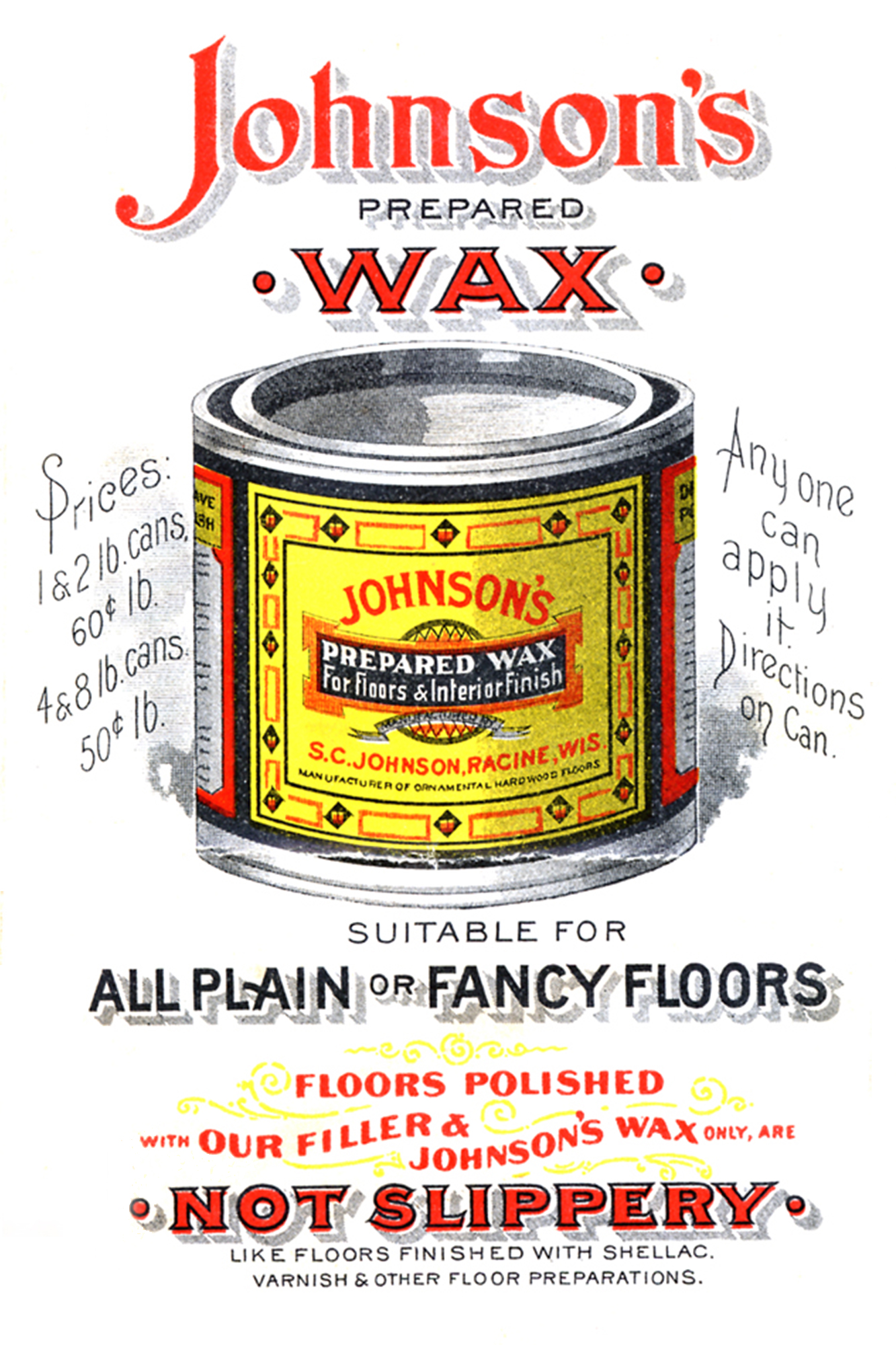
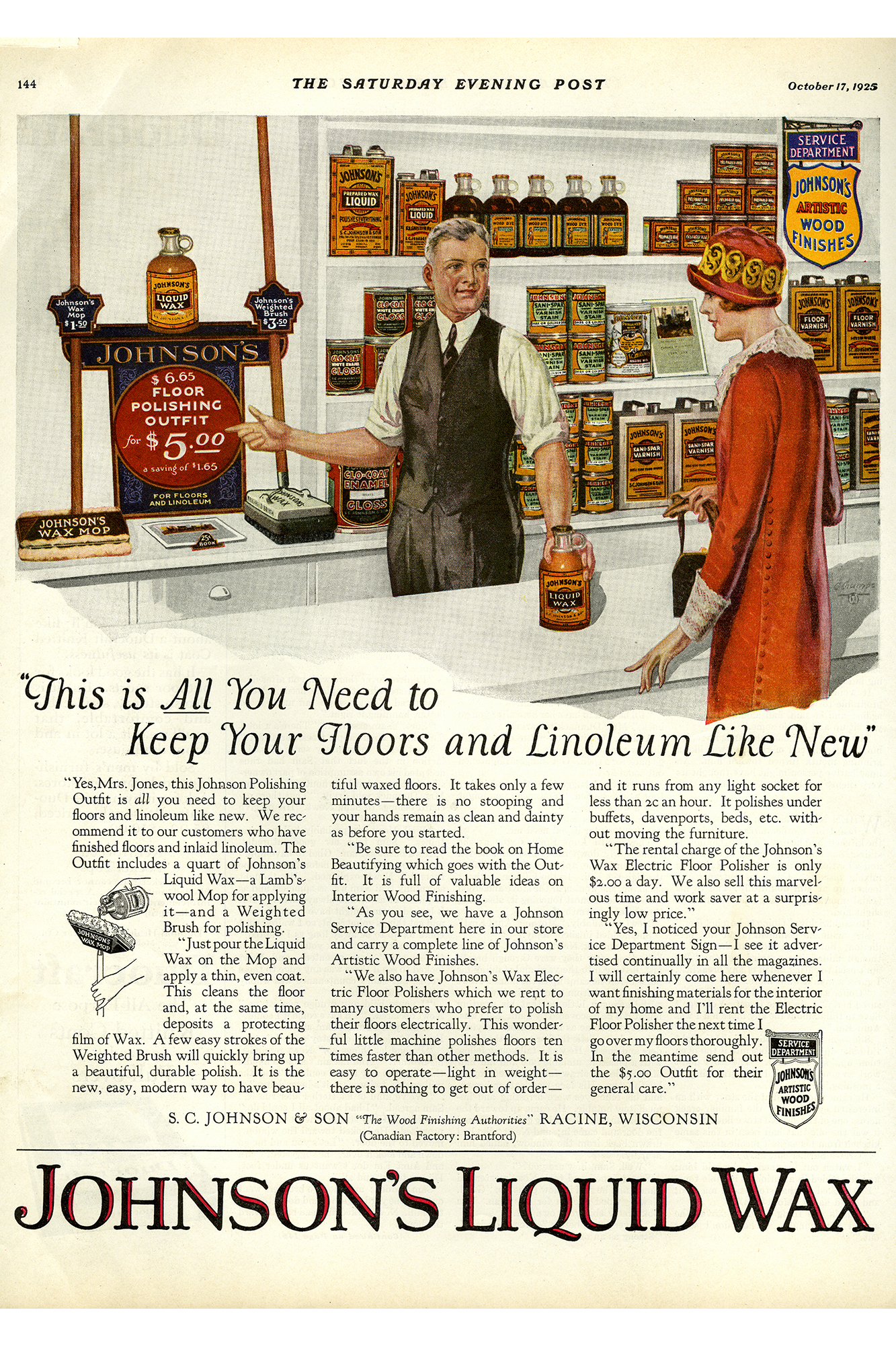
But it was during the golden age of radio that things really took off.
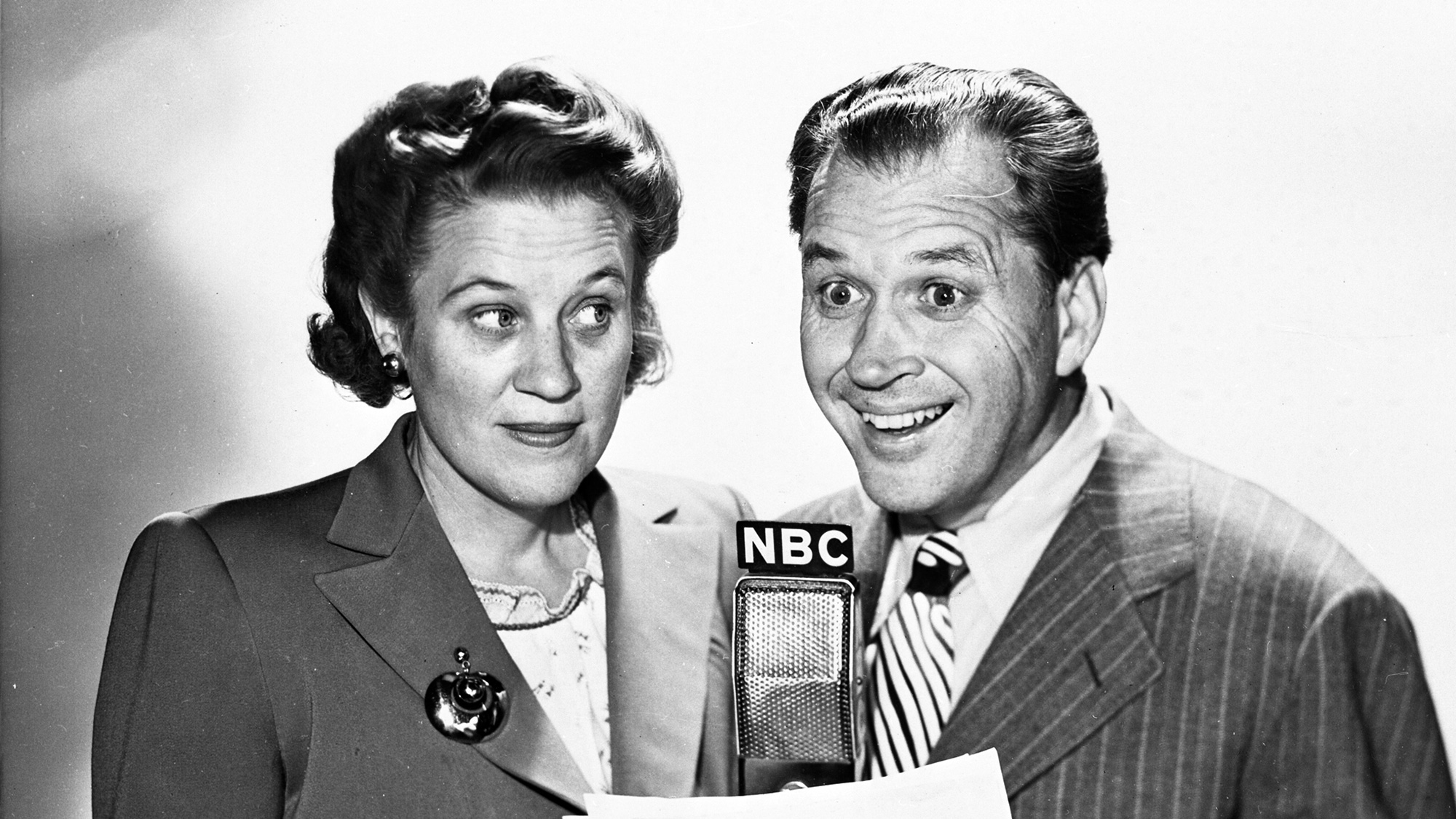
Creating an Old Time Radio Hit
Our introduction to radio began in 1931, sponsoring one of the most popular bands of the era, the Ted Weems Orchestra. Next came the “Johnson’s Daily Radio Guide,” a 10-minute daily program of household hints.
Then in 1934, two executives heard about a local program on Chicago’s NBC station called “Smackout.” It featured real-life married couple Marion and Jim Jordan.
Jack Louis, brother-in-law to H.F. and the company’s advertising counsel, and William Connolly, then public relations vice president, liked what they heard. William described hearing, “a quality in the voices of the players, a warmth and hominess, which was refreshing.”
Adding writer Don Quinn, the “Fibber McGee and Molly” show began development. This primetime situation comedy followed the adventures of a working-class couple — the perpetual storyteller Fibber McGee and his wife Molly. Most of the episodes took place in their home in Wistful Vista.
Eleven stations signed on the first year, and it went on to become one of the most popular shows in radio’s heyday. The show’s announcer, Harlow Wilcox, would expertly weave in an ad for Johnson’s Wax, earning him the nickname Waxy and ensuring the company held a welcome place in the hearts of listeners around the country.
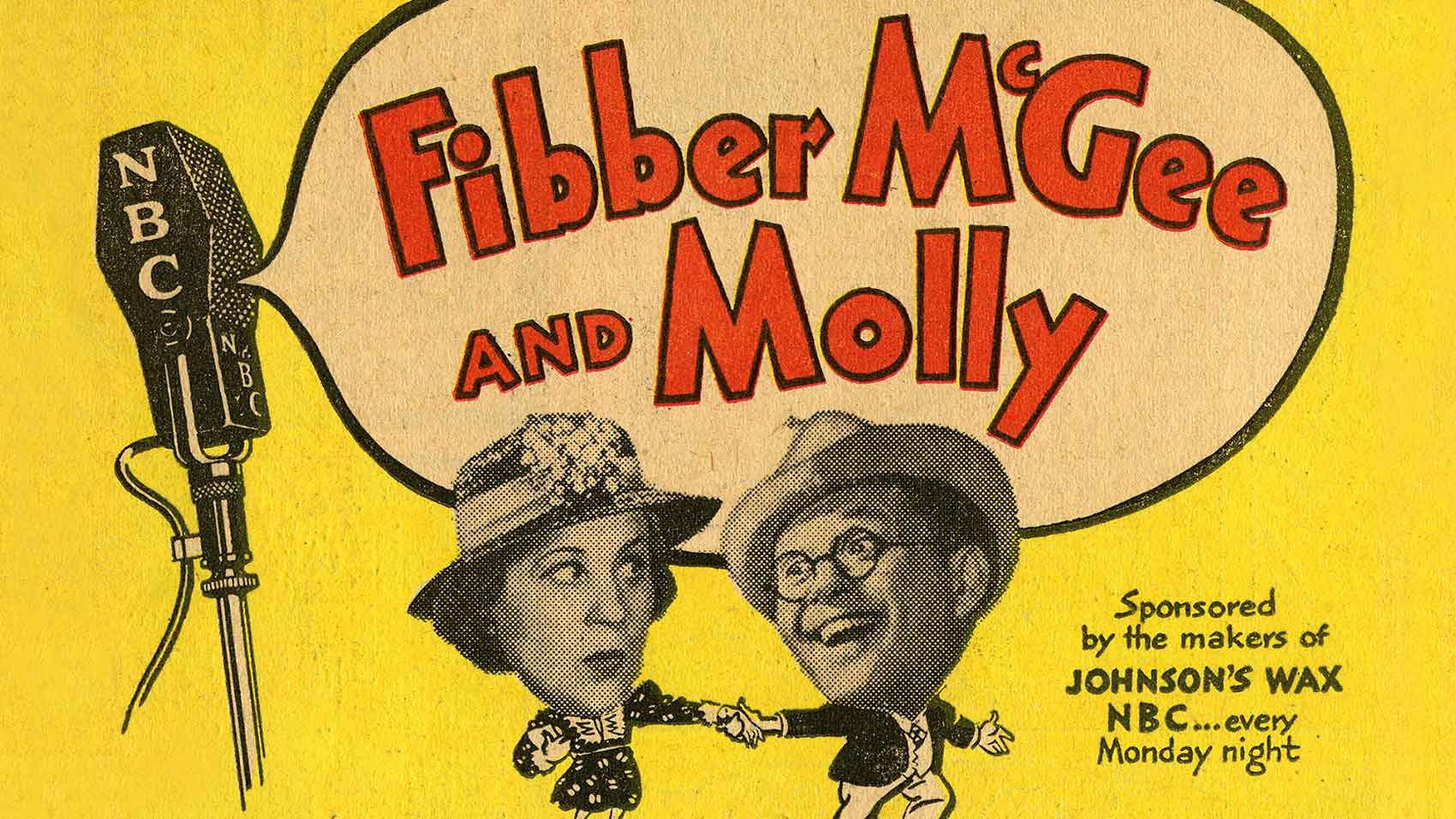
Enduring Laughs with a Comedy Classic
SC Johnson sponsored “Fibber McGee and Molly” for 15 years, introducing families to many of our products including one of our greatest early successes. Glo-Coat™ self-polishing floor wax launched in 1932, and was a key focus of the radio programme’s advertisements. With the Great Depression under way, few companies were spending advertising dollars to support new products. But H.F. believed that if a product was truly superior, it could thrive even in the most difficult economic times.
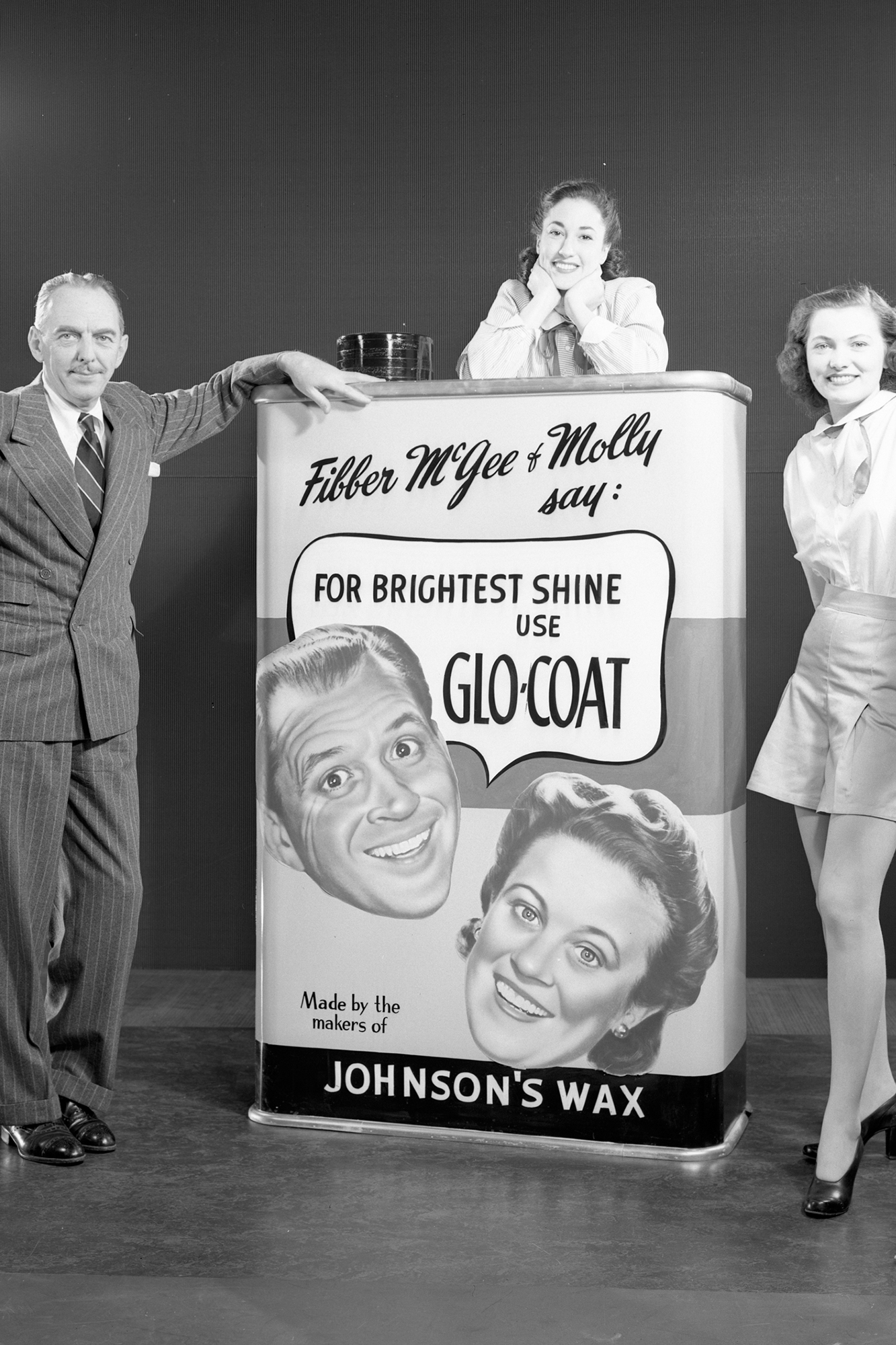
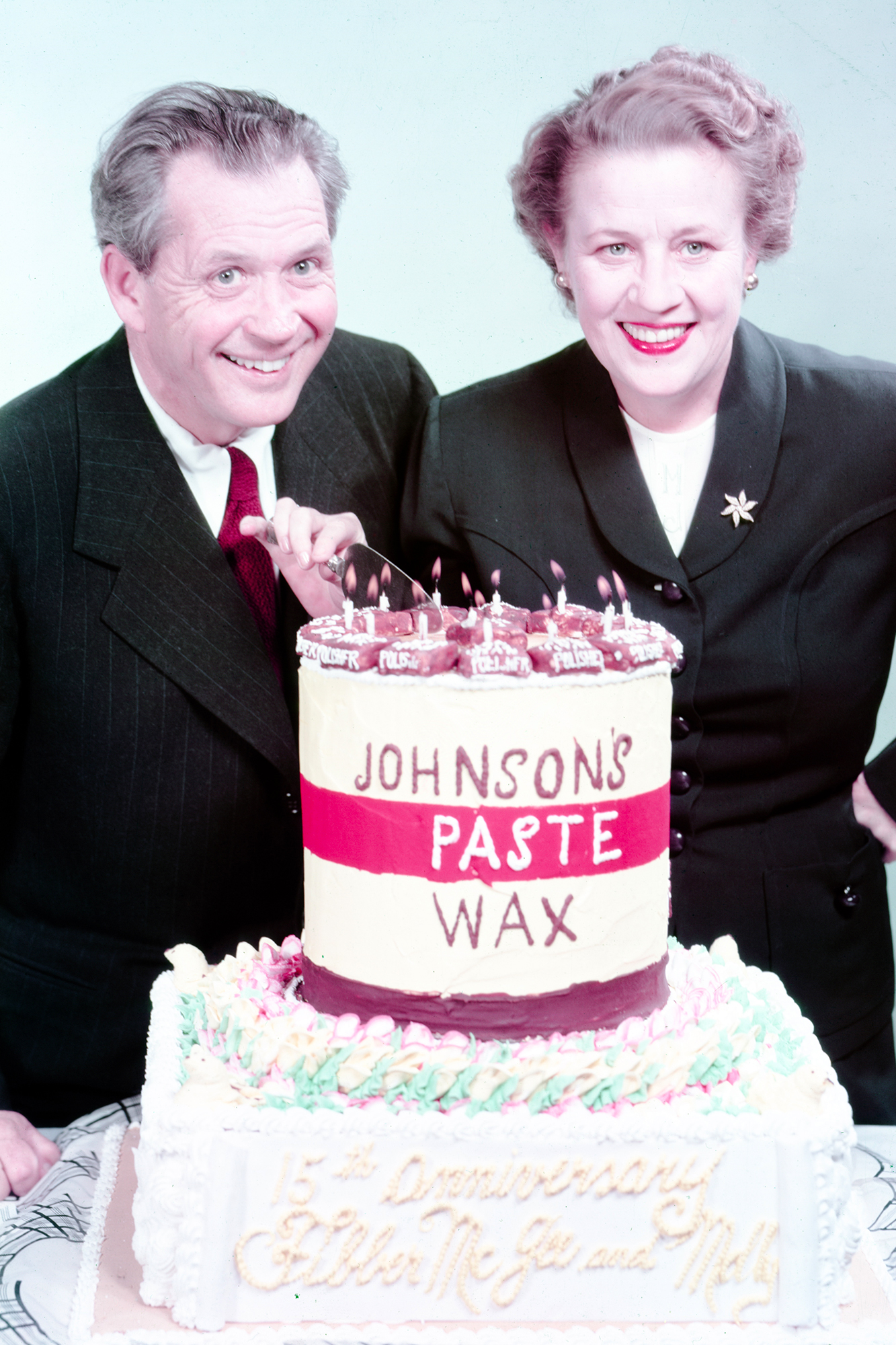
Through the war years, too, both the company and its advertising connected with families, sharing how our products were making a difference and encouraging listeners to support the war effort. Back home, we held jobs for those who served.
Radio ultimately gave way to television, with SC Johnson once again at the forefront, sponsoring shows like “The Mickey Mouse Club” and “The Red Skelton Show.” But the ultimate lessons of the “Fibber McGee and Molly” show remained: Reaching consumers in their homes is a way to reach their hearts. And, there is little more powerful than a good laugh.